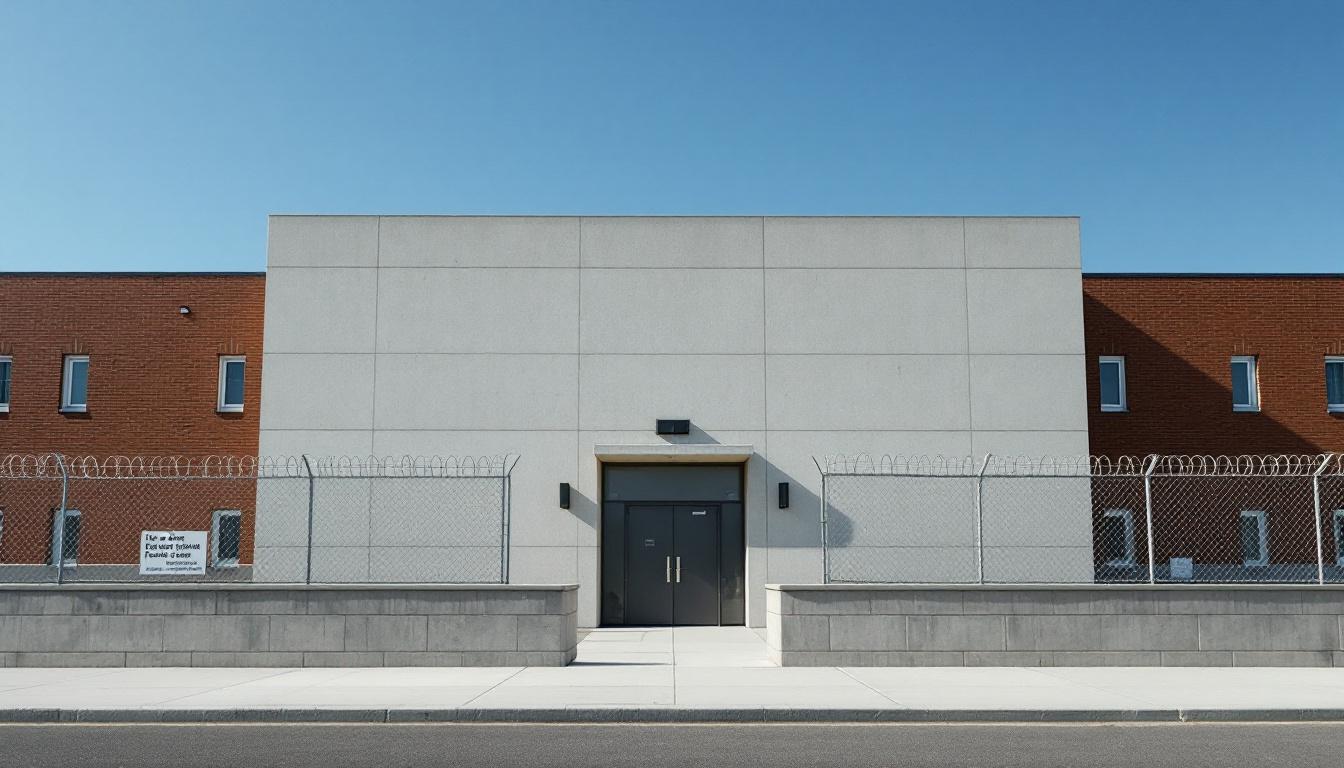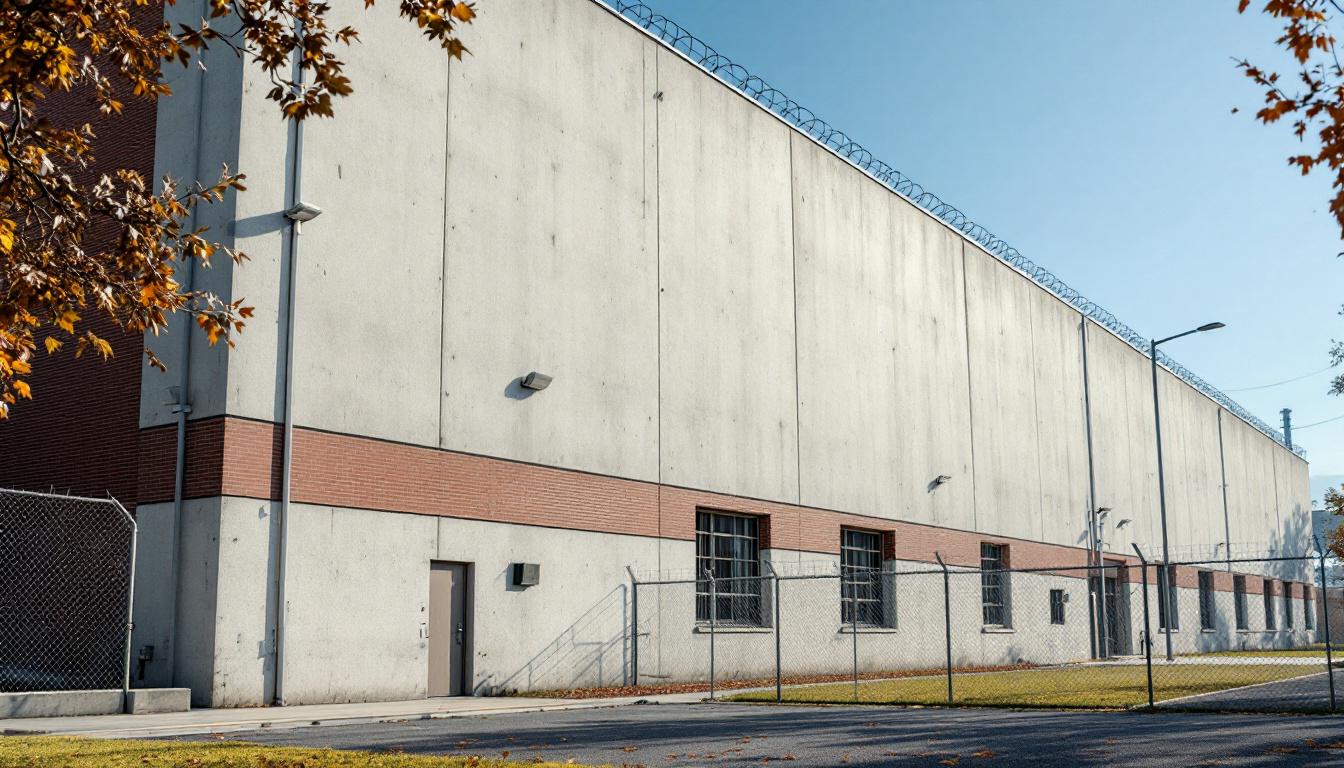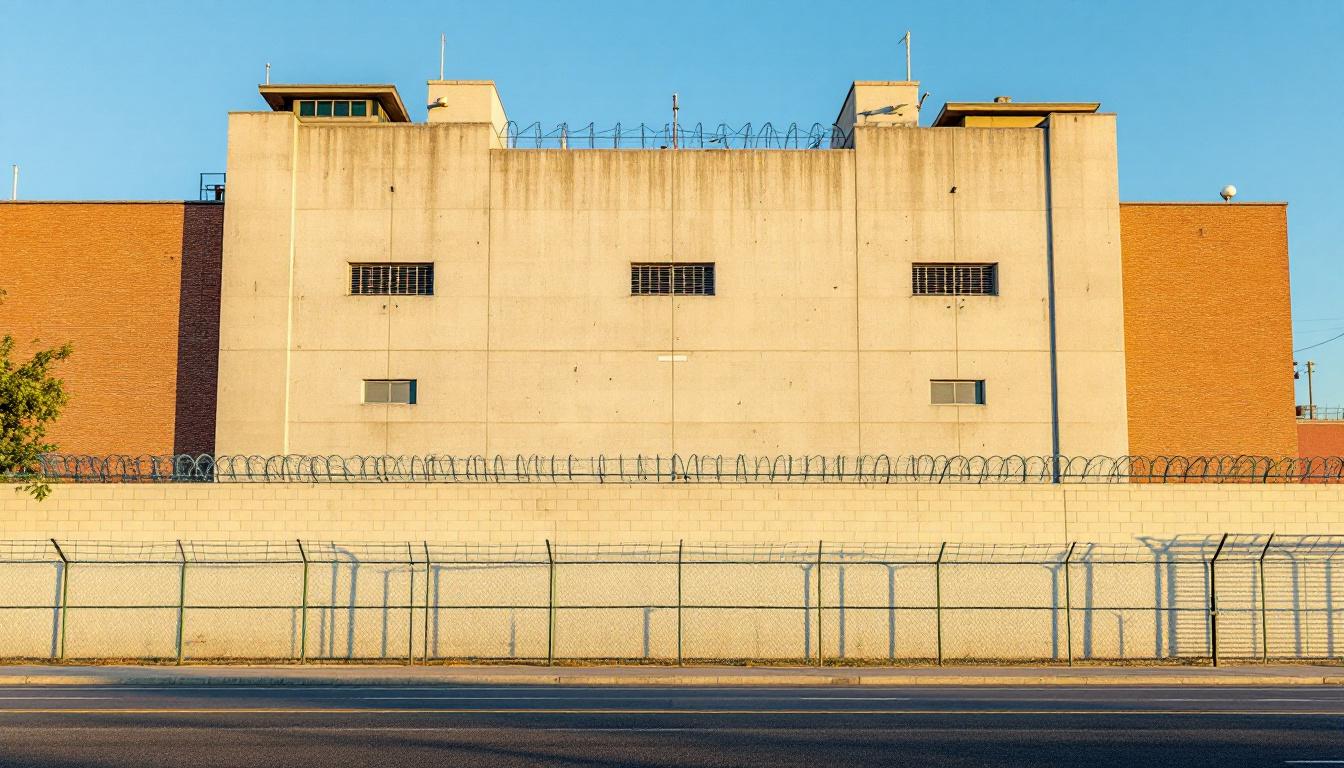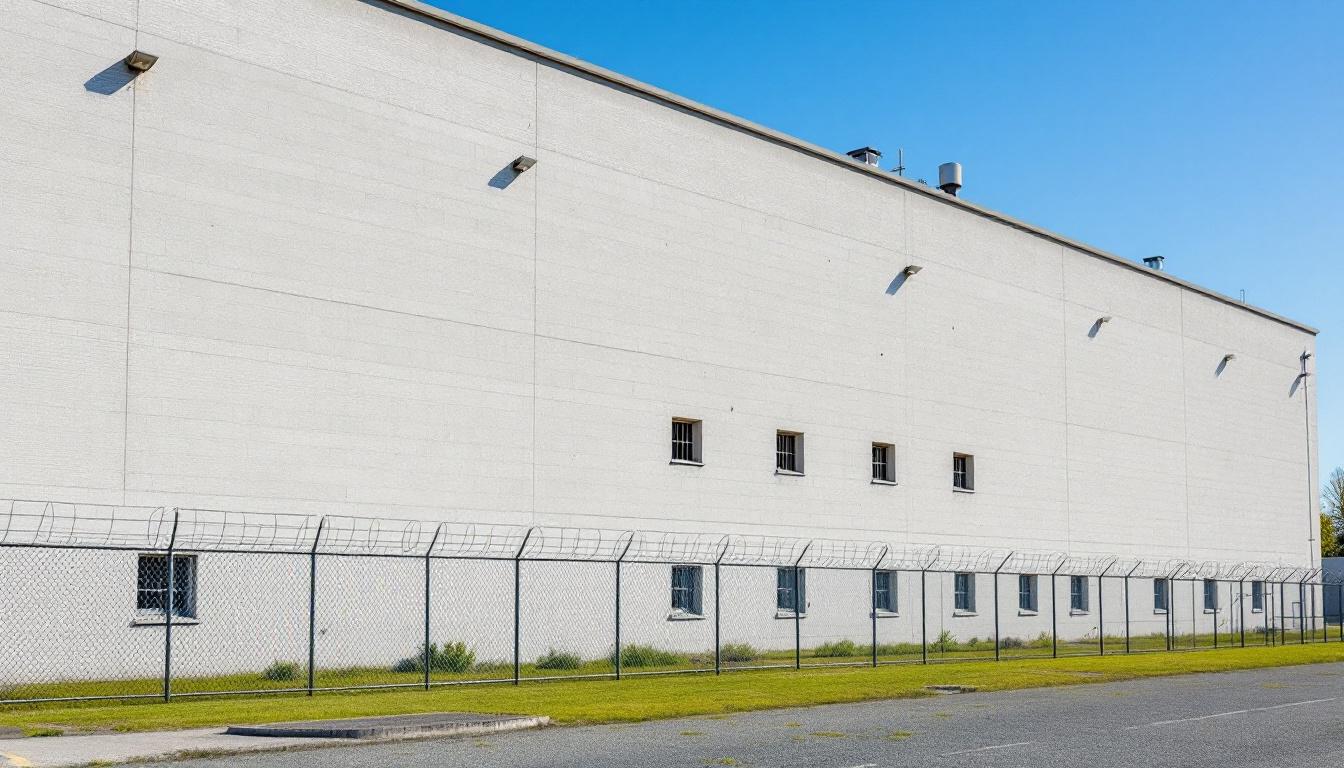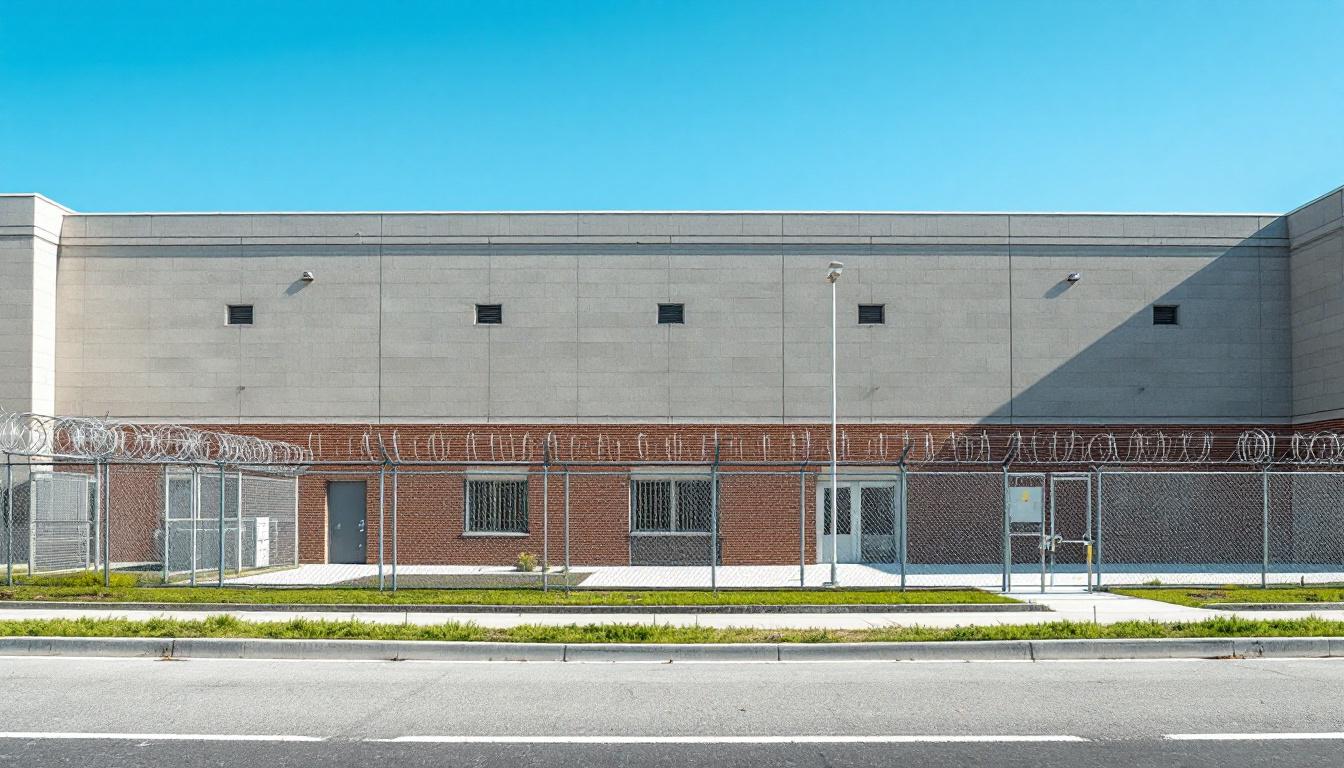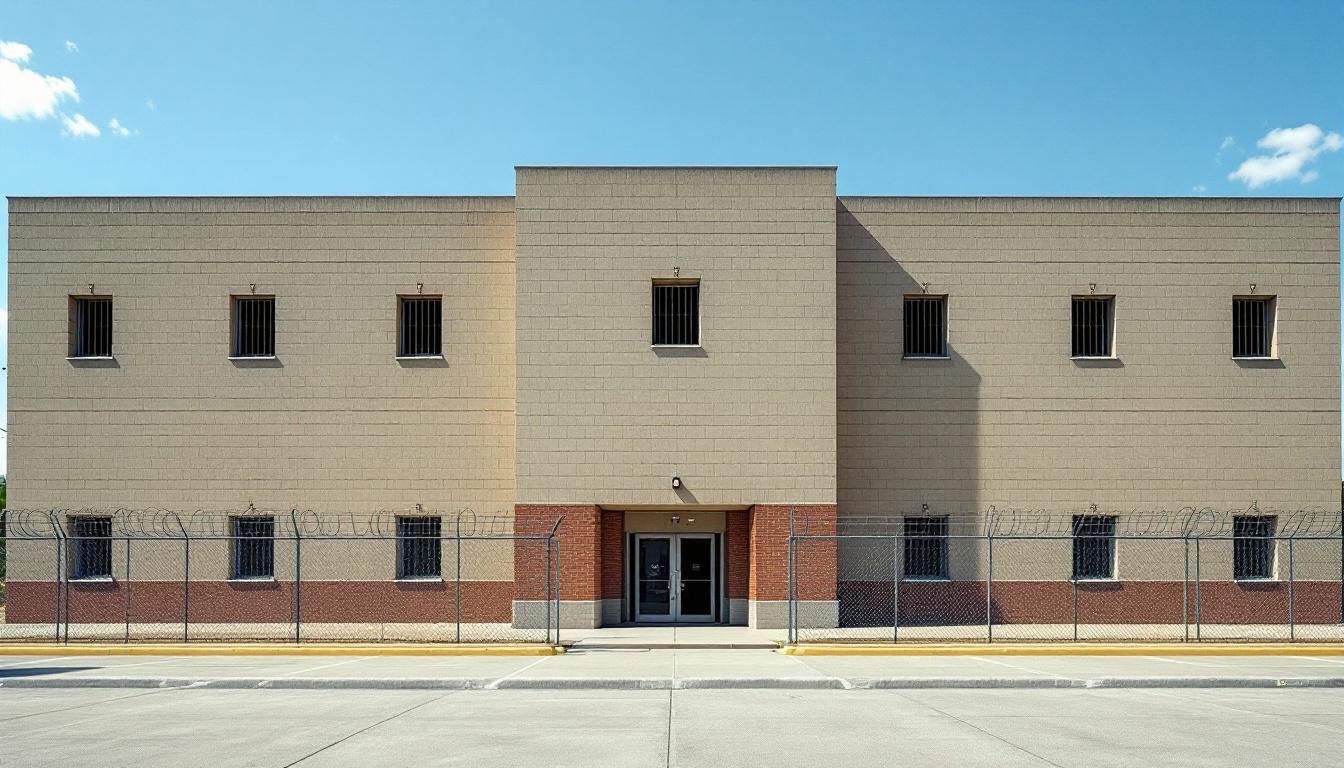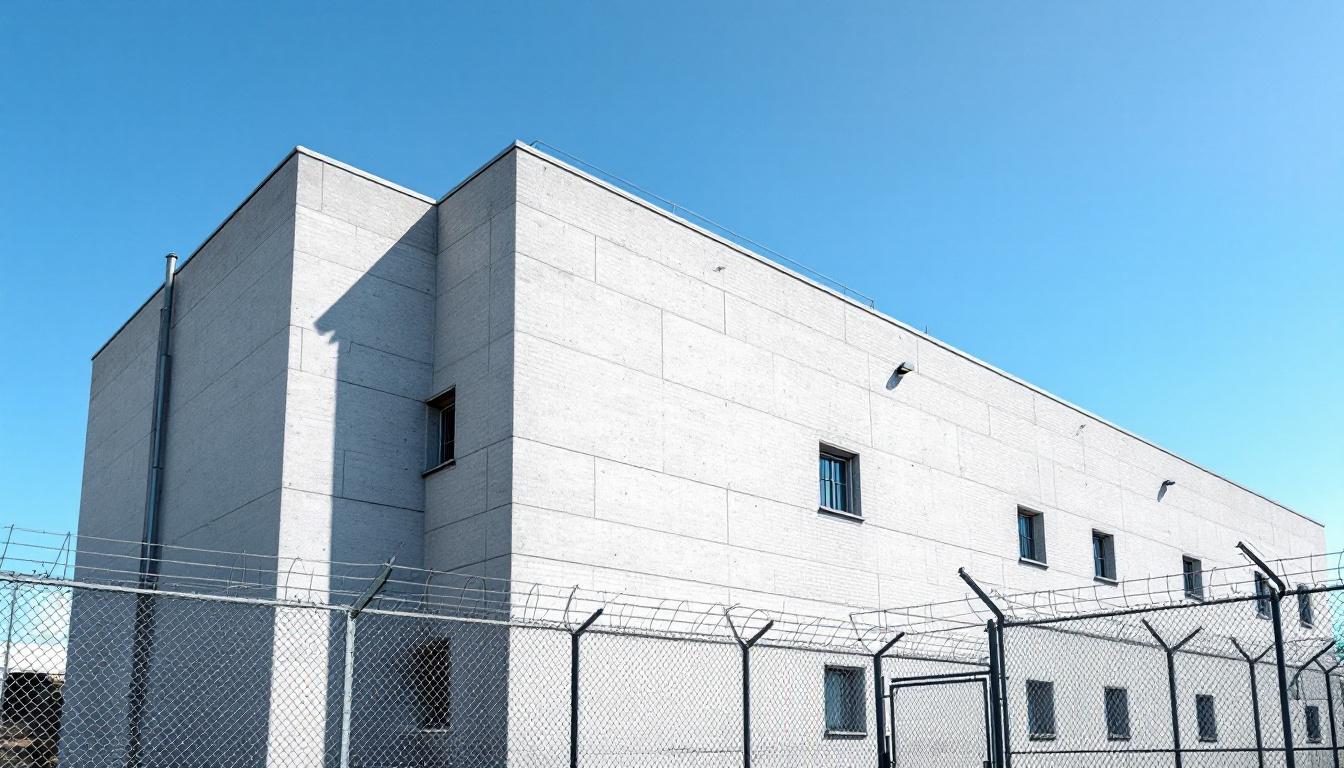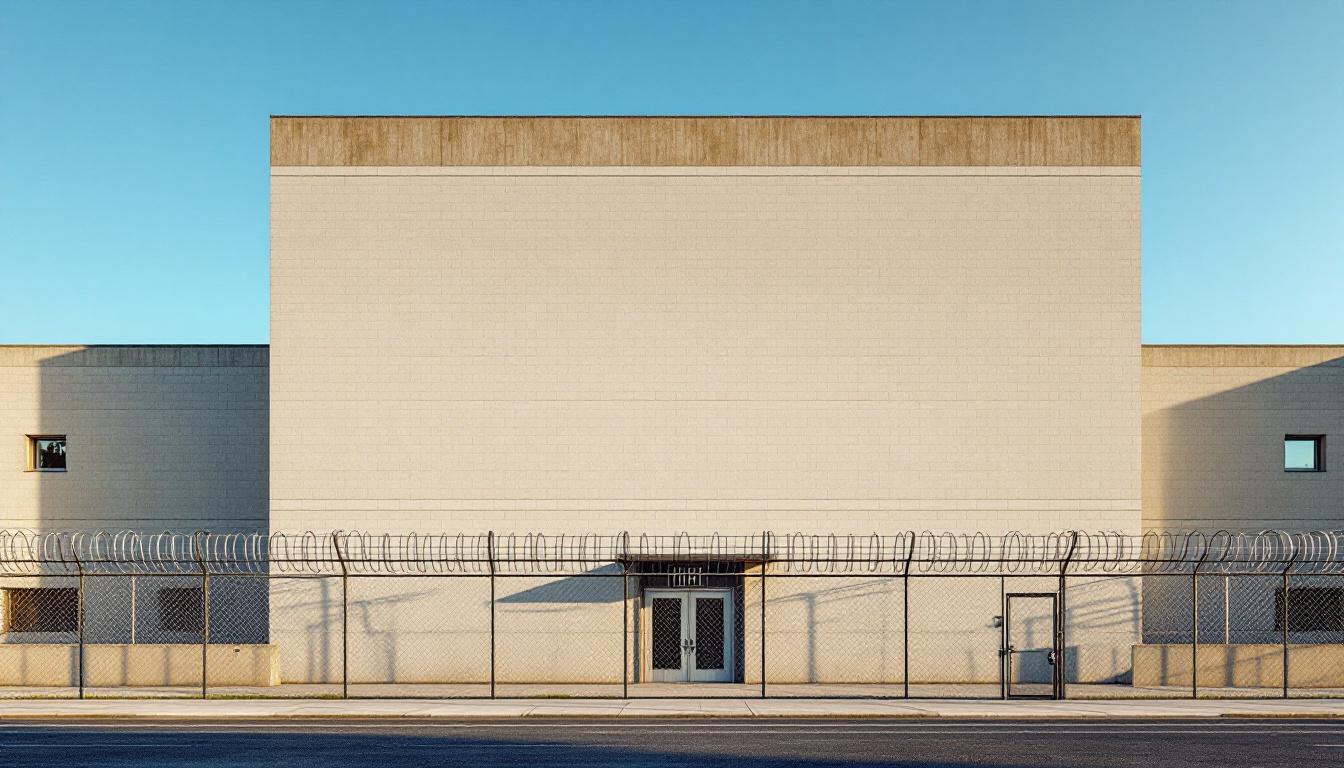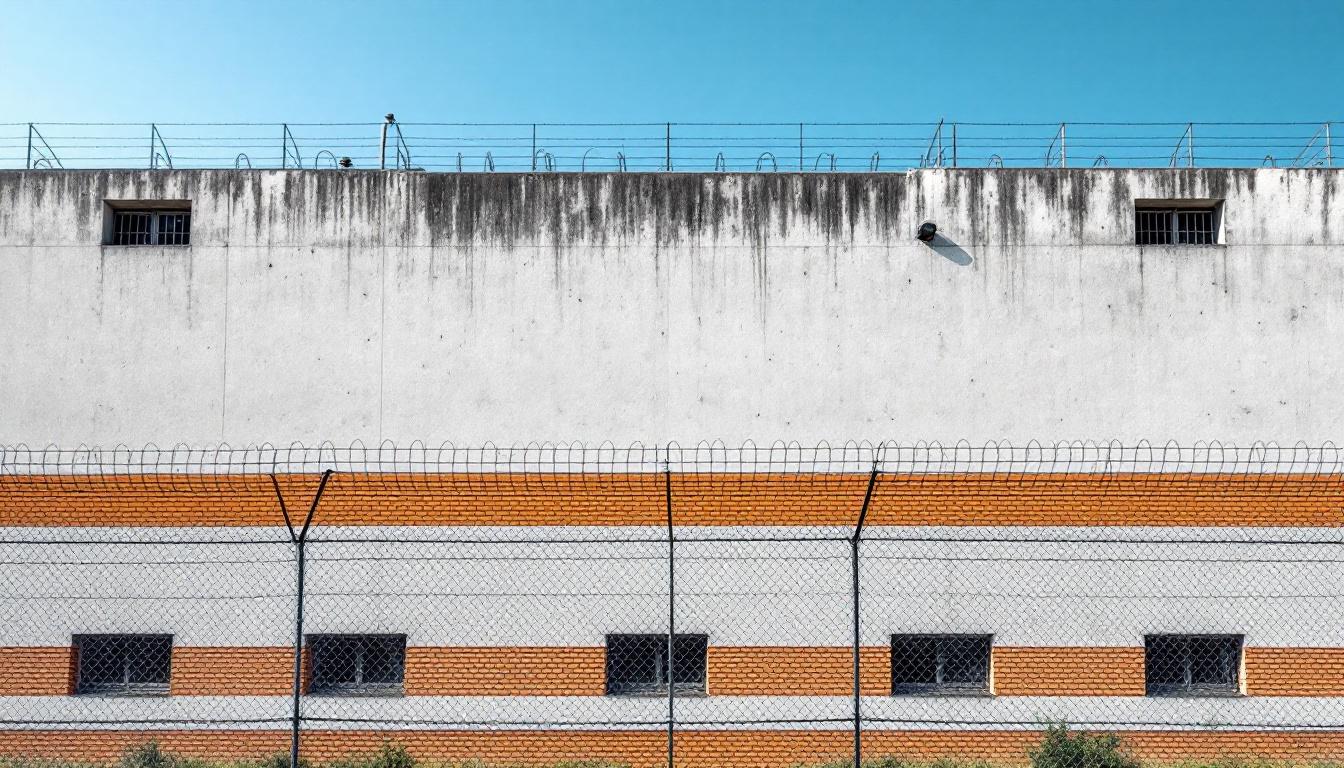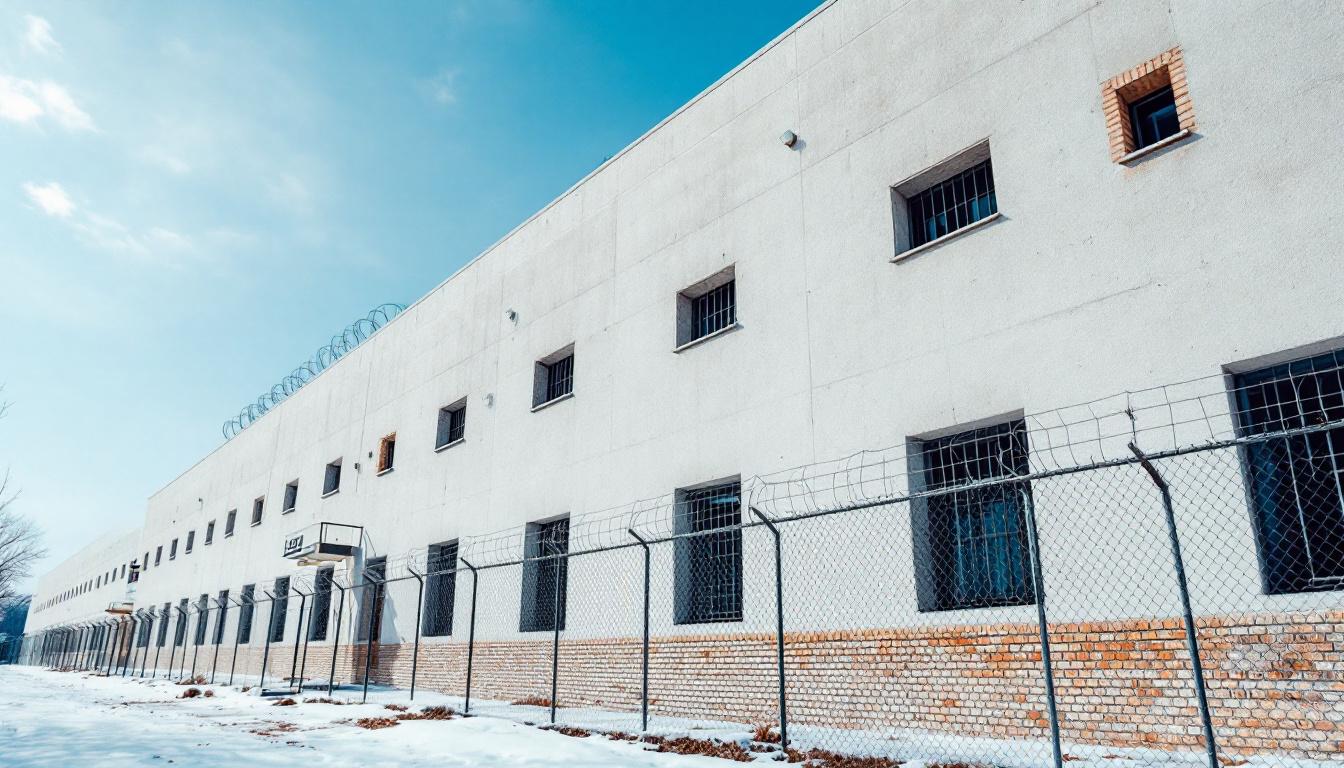
Quick Navigation
How to contact an inmate at Crossett Police Department
This comprehensive guide will walk you through how to connect with an inmate at Crossett Police Department. Follow the steps below to find an inmate and send letters and photos:
- Search for the inmate using our search tool below
- Create your account or log in to Penmate
- Write your message (up to 6,000 characters)
- Send instantly - inmates receive printed copies daily
Find an Inmate
Search for an inmate to start communicating today
Tip: You can search by first name, last name, or inmate ID number
To contact a person at Crossett Police Department start by searching for the person on the official facility website. Perform a search by following these steps:
- Step 1: Enter their first name and last name into the search form and click "Search"
- Step 2: Locate their inmate record
- Step 3: Write down their Inmate ID and any housing information provided
Important! Be sure to enter the person's full name. Nicknames should not be used.
How to Send Messages to Inmates

You can use your phone or computer to send emails, letters, and photos to an inmate. Messages are sent electronically to inmate tablets or kiosks at the facility. If you would like to send a message, start by searching for an inmate at Crossett Police Department.
Sending Photos and Postcards

A great way to send love and support to a loved one at Crossett Police Department is to send photos and postcards. It only takes a few minutes to send photos from your phone and it makes a huge difference. You can also mail postcards with words of support and inspiration, or design your own postcard for special moments like birthdays and holidays.
Important! Be sure not to send any explicit photos or they may not be approved by the facility. You can also use a photo printing app like Penmate to make sure your photos are printed at the correct size (4x6 or 3x5) and are mailed according to the rules and regulations of Crossett Police Department.
Frequently asked questions about Crossett Police Department
-
How long does it take to deliver a message?
If you're sending an email message your letter is usually delivered within 24-48 hours. For messages sent via mail you should expect delivery within 3-7 days. All messages will need be approved by Crossett Police Department.
-
How much does it cost to send a message to Crossett Police Department?
You can send a message free using your phone or mail a message via USPS for the price of a $0.60 stamp and envelope. You can also purchase credits or e-stamps from services starting at $1.99.
-
What services can I use to contact an inmate at Crossett Police Department?
Penmate
You can use Penmate to send letters and photos to an inmate from your phone. It's an easy way to stay in touch during your loved one's incarceration. Use the inmate locator to find an inmate's location and contact information, then you can send messages within a few minutes.
Securus messaging
Securus may be another option for communicating with an inmate at Crossett Police Department. You can create a friends and family account and purchase credits to send messages. All messages will be reviewed and must be approved by the facility.
JPay
Some county jails and state prisons may support sending messages with JPay. You must register an account with the system, find your loved one, and purchase stamps to send messages. For some locations you can also attach photos.
Smart Jail Mail
You may also check if Smart Jail Mail is available at Crossett Police Department. Smart Jail Mail is operated by Smart Communications and has contracted with some state and county jails. After purchasing credits, your messages and photos are sent to the facility, printed out, and then handed out to your loved one.
-
What is the mailing address of Crossett Police Department?
Mailing address:
Crossett Police Department
705 Dr Martin Luther King, Jr. Dr
Crossett, AR 71635
Phone: (870) 364-4131 -
What are the visiting hours at Crossett Police Department?
Visiting hours at Crossett Police Department vary by housing unit and security level. Generally, visits are scheduled on weekends and holidays, with some facilities offering weekday visits. Contact the facility directly at (870) 364-4131 or check their website for the current visiting schedule. Visits typically last 30-60 minutes and must be scheduled in advance.
-
What items are prohibited when sending mail to Crossett Police Department?
Prohibited items typically include: cash, personal checks, stamps, stickers, glitter, glue, tape, staples, paperclips, polaroid photos, musical or blank greeting cards, hardcover books, magazines with staples, and any items containing metal or electronics. Only send letters on plain white paper with blue or black ink. Photos must be printed on regular photo paper (no Polaroids). Always check with Crossett Police Department for their specific mail policies.
-
How do I send money to an inmate at Crossett Police Department?
You can send money to an inmate at Crossett Police Department through several methods: 1) Online using JPay, Access Corrections, or the facility's approved vendor, 2) Money orders mailed directly to the facility with the inmate's name and ID number, 3) Kiosks located in the facility lobby, or 4) Over the phone using a credit or debit card. Fees vary by method, typically ranging from $2.95 to $11.95 per transaction.
-
Can I schedule a video visit with an inmate at Crossett Police Department?
Many facilities now offer video visitation as an alternative to in-person visits. At Crossett Police Department, video visits may be available through services like Penmate, Securus Video Connect, GTL, or ICSolutions. Video visits typically cost $10-20 for 20-30 minutes and must be scheduled in advance. You'll need a computer or smartphone with a camera and reliable internet connection. Contact the facility for their specific video visitation policies and approved vendors.
-
What identification do I need to visit an inmate at Crossett Police Department?
All visitors must present valid government-issued photo identification such as a driver's license, state ID, passport, or military ID. Minors must be accompanied by a parent or legal guardian who can provide the minor's birth certificate. Some facilities require visitors to be on the inmate's approved visitation list, which may require a background check. Contact Crossett Police Department for specific ID requirements and visitor approval procedures.
-
How can I find out an inmate's release date?
To find an inmate's release date at Crossett Police Department, you can: 1) Use the online inmate search tool if available, 2) Call the facility's records department, 3) Contact the inmate's case manager or counselor, or 4) Have the inmate provide this information during a call or visit. For privacy reasons, some facilities only release this information to immediate family members.
Facility Overview
Contact Information
Crossett Police Department705 Dr Martin Luther King, Jr. Dr
Crossett, AR 71635
Phone: (870) 364-4131
Official Website

About Crossett Police Department
Serving the residents of Hamburg and surrounding Ashley County communities, this correctional facility operates as an integral component within Arkansas’s broader detention network. The Ashley County Jail, AR functions primarily as a pre-trial detention center and short-term housing facility for individuals awaiting court proceedings or serving brief sentences, while maintaining its commitment to public safety and judicial support throughout the region.
As an AR correctional facility, the institution typically provides essential services that may include basic medical care, meal programs, and visitation opportunities for families. The facility generally operates within standard county jail protocols, offering inmates services such as commissary access and communication systems to help maintain connections with their support networks. Located in Hamburg, the facility often coordinates with local courts, law enforcement agencies, and community organizations to facilitate the judicial process and support reintegration efforts when appropriate.
The jail’s role in Arkansas’s correctional system extends beyond simple detention, as it may provide educational resources, substance abuse information, and other rehabilitative programming designed to address underlying issues that contribute to criminal behavior. Through its operations in this south region community, the facility works to balance the dual responsibilities of maintaining security while supporting individuals during a challenging period in their lives, ultimately serving both public safety interests and the broader goal of reducing recidivism within Ashley County.
Programs & Services
Personal transformation through structured learning opportunities forms the cornerstone of rehabilitative services at Ashley County Jail. The facility’s approach to inmate development emphasizes practical skill acquisition alongside character building, recognizing that meaningful change occurs when individuals are equipped with both tangible abilities and internal motivation for growth. This comprehensive philosophy typically integrates multiple service delivery methods to address the diverse needs of the inmate population, fostering an environment where personal development can flourish through sustained engagement and progressive achievement.
Educational and vocational services may provide inmates with essential pathways toward economic stability upon release. Vocational education initiatives often focus on developing marketable skills that align with regional employment opportunities, while specialized automotive repair training typically offers hands-on experience with diagnostic procedures, engine maintenance, and mechanical problem-solving. These structured learning environments generally emphasize both technical proficiency and workplace readiness, preparing participants to navigate professional expectations while building confidence in their abilities to contribute meaningfully to their communities.
Furthermore, comprehensive support services address the multifaceted challenges that often contribute to criminal behavior patterns. Agriculture programs may offer therapeutic benefits through outdoor work and connection with natural cycles, while faith-based services typically provide spiritual guidance and community support for those seeking meaning and accountability. Domestic violence programs often include counseling components designed to address harmful relationship patterns, and life coaching services may focus on goal-setting, decision-making skills, and personal accountability strategies. These interconnected support systems generally work together to create a holistic approach to rehabilitation that addresses both immediate needs and long-term personal development objectives.
Daily Life & Visitation
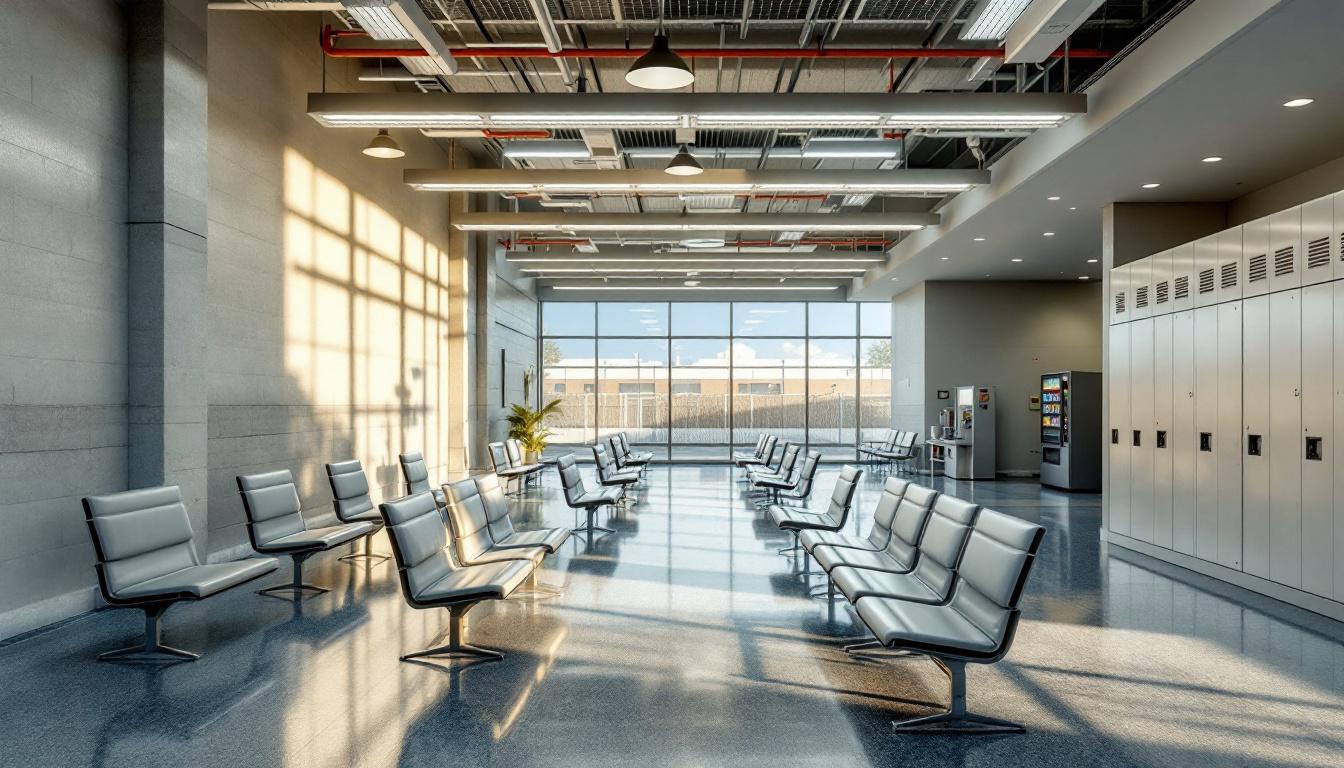
The concrete walls and metal fixtures of Ashley County Jail create an institutional environment where inmates must quickly learn to navigate limited personal space and shared living quarters. Today, inmates consistently follow a structured routine that begins early in the morning with headcount and continues through scheduled meal times, programming activities, and evening lockdown procedures. The facility typically maintains order through regular security checks and established protocols that inmates generally adapt to within their first few days of arrival.
Housing units at the facility usually consist of dormitory-style accommodations or smaller cells, depending on classification levels and available space. Inmates typically share living areas with others and must learn to respect personal boundaries while managing limited storage for approved personal items. Meals are generally served in designated dining areas at scheduled times, with inmates often adapting to institutional food service and learning to supplement their nutrition through commissary purchases when funds are available. Furthermore, the facility may provide basic recreational opportunities such as television viewing areas, limited outdoor time when weather permits, and access to reading materials through a small library collection.
Although the environment presents significant adjustments, inmates often find structure through available work assignments that may include kitchen duties, cleaning responsibilities, or facility maintenance tasks. Programming schedules typically provide educational opportunities, substance abuse counseling, or religious services that help inmates maintain connections to personal growth and rehabilitation goals. Family connections remain vital during incarceration, with the facility generally offering scheduled visitation periods and phone privileges that allow inmates to maintain important relationships, though these communications usually operate under specific guidelines and time restrictions that families must understand and respect.
Ready to Connect?
Start communicating with your loved one today
Search for an Inmate
